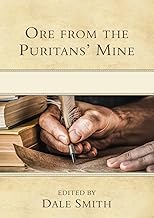Review of Martin Luther: A Spiritual Biography, by Herman Selderhuis, Wheaton; Crossway, 2017, 347 pages, hardback.
Quite rightly, in view of the historical and spiritual importance of the Reformation, there have been a spate of books about Martin Luther; this year, and indeed this day, being the five hundredth anniversary of the event that sparked the movement into flame – the nailing of Luther’s 95 theses onto the church door at Wittenberg on October 31st, 1517.
The author of the present book, Herman Selderhuis, has distinguished himself with his work on John Calvin, including a study of Calvin’s Theology of the Psalms and The Calvin Handbook. He has also written a similar biography to this on John Calvin.
The very first thing I want to say about this biography of Luther is that it is very well written. Selderhuis has a plain, pithy and subtly tongue-in-cheek style that really makes the material flow. The second thing I would say is that this is not biography lurching into hagiography. The book presents the Reformer as a very flawed but endlessly fascinating individual. Luther was, for example, proud (179) and stubborn (181). His greatest sin was undoubtedly his anti-semitism (286-288). Even though there is some mitigating evidence provided by Ernest Schweibert’s The Reformation, who states that four times Luther sought to employ Jewish instructors of Hebrew at the university, there is overwhelming evidence that Luther’s attitude towards Jews was bigoted and ungodly (Further confirmation of this can be found in the first chapter of Hans-Martin Barth’s very fine The Theology of Martin Luther). And even though it is anachronistic to blame Luther for the use made of him by the Nazis, the fact that his invectives could so easily be utilized makes it difficult to remove the odium that has subsequently been heaped upon him.
It is a testament to the many-sided character of the man that Martin Luther is still eminently inspirational and worth reading about. He was a man of decisive character and great courage, being able to go against convention for conscience sake.
The world was a different place then. Satan and demons were at large everywhere:
Miners, who worked in darkness deep underground, were terrified at the thought of meeting an evil spiritual being. (21)
As for God, He was too lofty, too holy, and far too demanding for any sinner to know if he had done enough to receive his grace (e.g, 63), although after his trip to Rome he began to have doubts (71). His lectures in theology and the Bible from 1513 to 1517 saw him searching for and developing a distinctive theology of grace which eventually found its center in God’s offer of righteousness in Christ (89, 108). The whole thing is so well summarized at the start of chapter 6 that I quote it below.
A society that was based on the conviction that people have to restore their relationship with God changed radically when a new foundational conviction emerged: that God in Christ accomplished everything. God’s justice was no longer the threat that drove someone to pursue a morally upright lifestyle, but rather, it was a gift that motivated people to gratitude. This theology, this new relationship between God and people, removed the logical basis of the mass, pilgrimages, veneration of relics, celibacy, monastic life, purgatory, preoccupation with the salvation of the dead, and the all-encompassing and supreme position of the church. Luther’s theology brought something totally different from what previous attempts at reformation had sought. The fact that God provided righteousness instead of requesting it made it necessary to reconsider the church, preaching, lifestyle, marriage, education, politics, heaven and hell, death, and the Devil. (135-136).
This really was a sea change in European culture. The knock-on effects are still being felt in our day.
Along the way Selderhuis dispenses with a few of the myths surrounding Luther’s oath to St. Anne in a thunderstorm (43-44), that Luther was the first to translate the Bible into German, and even the fact that Luther himself almost certainly did not nail the 95 Theses to Wittenberg Church door. The Theses were nailed to the door, but it would have been a student who would have been entrusted to put them there (100). Whatever romantic notions have to disappear before these details, the main facts are unaltered.
The author is an expert in the Reformation and he moves with ease from one personality or to another and one stage of Luther’s career to another. He provides his information in such a winning way that I have to agree with Michael Haykin’s assessment on the flyleaf: “This is how biography should be written.”
Crossway Publishers (who provided me with this copy) are to congratulated for producing such a readable Life of Martin Luther.

2 comments On Review: Martin Luther – A Spiritual Biography
Reblogged this on Talmidimblogging.
Pingback: Followers, protestors and reformers | Stepping Toes ()